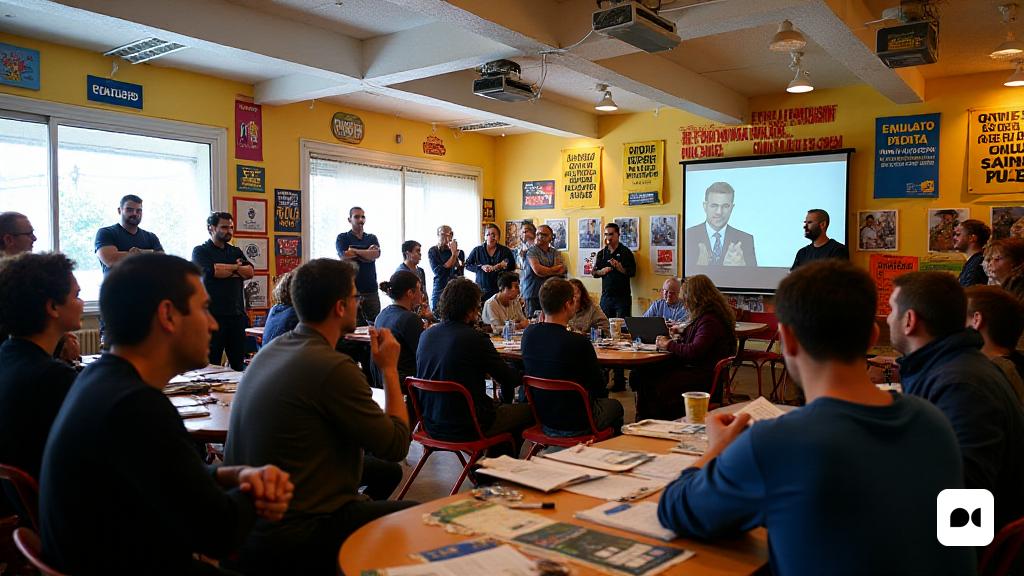The reality of the informal economy
The informal economy deeply affects society, leaving a large number of workers in a state of vulnerability. Without employment contracts, without contributions to Social Security and without access to pensions, these people are trapped in a cycle of precariousness. It is currently estimated that this situation represents about 18% of the economy, with more than 200 billion euros that do not reach public coffers, negatively shocking the financing of essential services.
Reflecting on social justice
On the occasion of the first of May, the Workers’ Pastoral of Catalonia held an event in Barcelona to address the importance of dignity in work. The round table entitled “United in participation. Forts in the vindication” brought together several voices from the labor and social world to discuss issues such as public health, housing and the importance of community participation.
Voices of the community
Miguel Romera Lorenzo, representative of a neighborhood association, emphasized the need for these organizations to be autonomous and active in the defense of citizens’ rights. His statement resonates with the idea that communities must be proactive and capable of implementing significant changes.
Public health as a common good
Grego Belmonte Ferrer expressed concerns about the mercantilization of healthcare, warning that the budgets for public health continue to decrease, while agreements with private centers are multiplied, compromise universal access to health.
Care and sustainability: a shared responsibility
The debate on the care of the planet was another of the central topics of the day. Salva Clarós, an expert in work policies, emphasized the need to transform the production and consumption model, emphasizing that sustainability requires a revision of our lifestyle and a collective commitment.
The role of educators
Raquel Gómez Molina, a teacher and activist, shared his experience of the importance of social awareness among teachers. He said that, despite the difficulties, it is essential for teachers to get involved in the defense of their students’ rights, especially those suffering from situations of vulnerability such as eviction.
A message of hope and solidarity
In its Sunday letter, Cardinal Omella called for solidarity with workers living in precarious conditions. He reaffirmed the Church’s commitment to the defense of labor rights and expressed the desire that everyone have access to decent jobs and a deserving rest.
With a message of hope, Omella urged the community to join the struggle for social justice, remembering that collective effort is essential to building a fairer and more equitable future for all.

